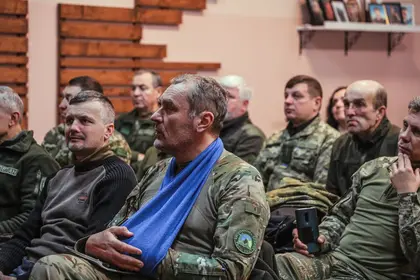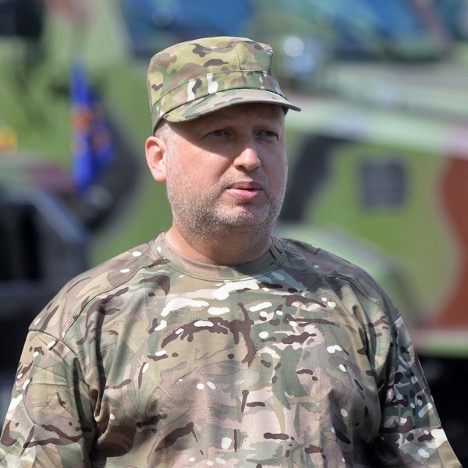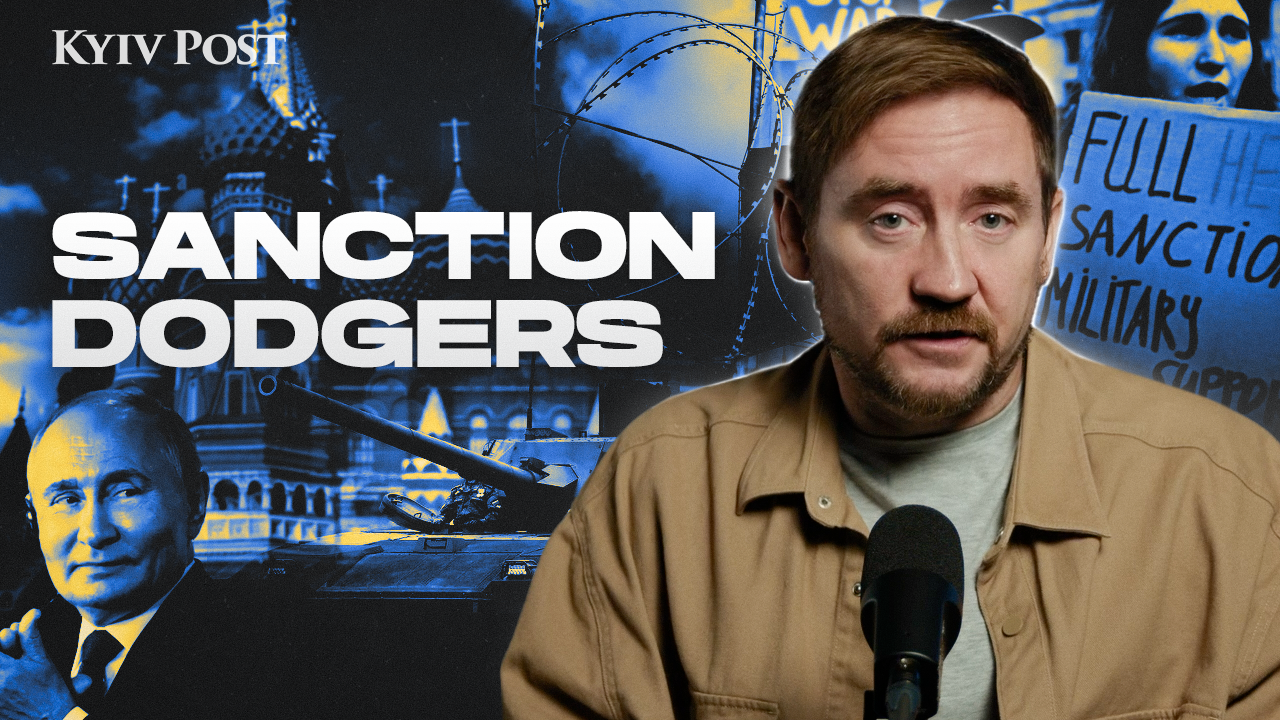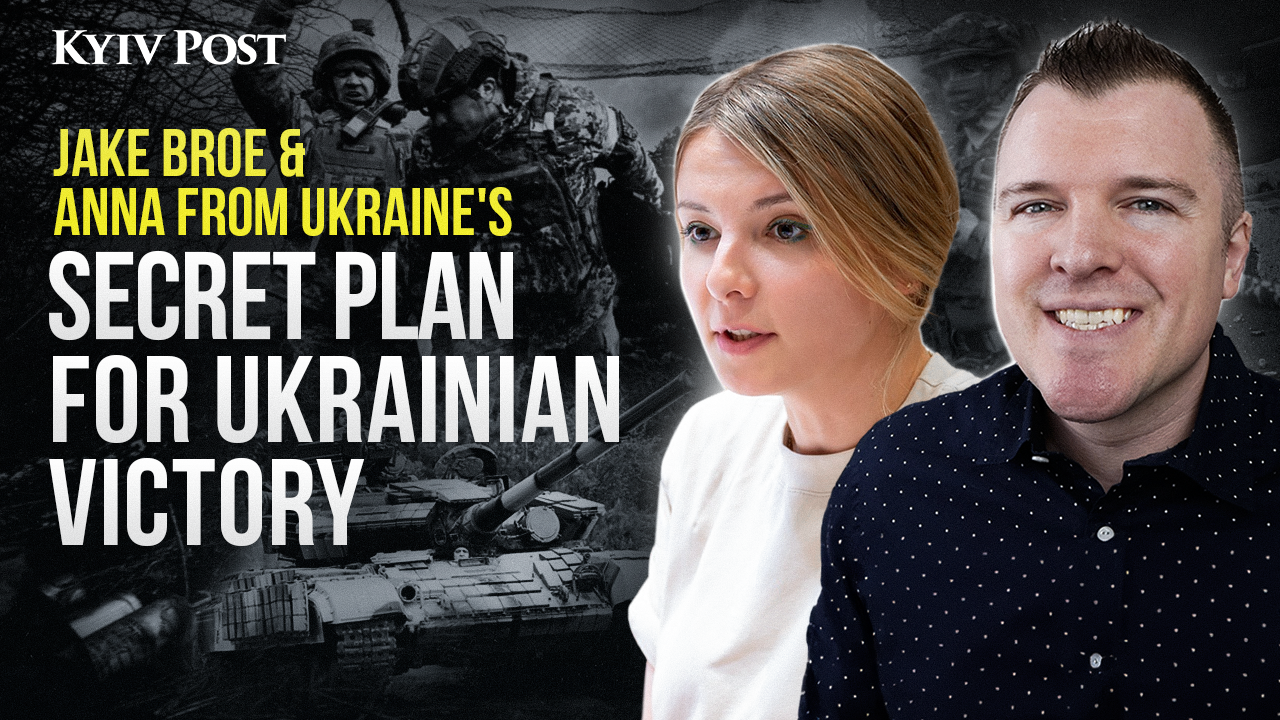Although Ukrainian Protestants have played a role in the Russia’s war against Ukraine, one aspect that has often been overlooked is the notable shift away from their previous commitment to nonviolence, which can be traced back to the initial Russian invasion of Donbas in 2014. Amid Russia’s barbaric war, Ukrainian Protestants, like the rest of the country, have embraced an increasing sense of nationalism.
Protestants in Ukraine have endured a unique history of oppression as a minority group, shaped by their pacifist theology, which has forced them to operate as an underground church. In contrast to the dominant Eastern Orthodox Christianity of the region, which served as the official state church of the Russian Empire, Protestantism emerged in Ukraine during the 1530s and 1540s.
JOIN US ON TELEGRAM
Follow our coverage of the war on the @Kyivpost_official.
Despite their early influence in areas like education, publishing, and public life, these early Protestants eventually lost their sway and gave way to new groups such as Baptists (1867), Adventists (in the late 19th century through the efforts of Western missionaries), and Pentecostals (in 1921 through the missionary efforts of former Baptist minister Ivan Voronaev).
Mistrust of the minority
Throughout their existence, Protestants, as religious minorities, have been viewed with mistrust. The Orthodox Church, regarding itself as the sole apostolic church, did not view Protestants favorably. Instead, suspicion and the label of “sect” were cast upon them. Furthermore, as these Protestant groups arrived from Western countries, they were seen as “foreign” imports and faced cultural non-acceptance.
The Protestant faith has a diverse history when it comes to pacifism. Within Baptist groups, there existed a split on the question of violence. While some Baptists, influenced by Mennonite theology, embraced pacifism, other Baptist factions allowed believers to join military service, as permitted by their confessions. Early Pentecostal congregations, affiliated with the Assemblies of God, had a notable history of nonviolence. Similarly, Adventists have long emphasized the value of peace over violence.
Turning away from an atheist state
Under Soviet leadership, Protestants initially faced suspicion, which later turned into antagonism. According to Ukrainian historian Oleh Bornovolokov, Soviet leaders aimed to impose state control over Protestants, compelling them to submit to their control. In response, Baptists, Pentecostals, and Adventists drafted statements threatening excommunication for those who opposed serving in the Red Army.
However, many Christians adhered to their pacifist convictions, refusing to take up arms. This resistance to Soviet leadership marked them as a direct threat to the state, resulting in mass arrests of church leaders and forcing the church to operate underground.
The antagonism toward Protestants continued throughout the Cold War period, yet their nonviolent ideals increased. After a brief period of restricted religious freedom in the 1940s, during which some leniency was shown, the state resumed its arrests of Christians, particularly those associated with capitalist countries. Protestants were the largest group to be charged with “anti-Soviet agitation and propaganda” during the Cold War.
The evidence provided for these charges was often fantastical and phony, some of the accusations included saying “Heil Hitler,” listening to American voices, and claiming an inevitable war with America. While the accused denied these accusations, they did admit their “refusal to bear arms.” Pacifism, generally seen as passive and weak, was used by Protestants as resistance toward an atheistic state that resented them. After an early period of mixed opinions on violence, increased state oppression generated pacifism as the cemented view of Protestants.
The collapse of the Soviet Union in 1991 granted the church newfound political freedom. Initially, Ukrainian Protestants remained committed to pacifism and focused on spreading the gospel to unbelievers. However, hindered by the traumas of the past and the mass migration of generational Protestants out of Ukraine, these churches struggled to establish a distinct identity. This state of stagnation and underdevelopment persisted until the Maidan Revolution.
It is impossible to love the world without loving one’s own people.
The Maidan watershed
The Maidan Revolution, coupled with the Russian occupation of the Donbas and the annexation of Crimea, prompted Ukrainian leaders to reevaluate their beliefs regarding political involvement and nonviolence. Despite being a small minority, comprising only around 2 percent of the population, Protestants found themselves playing a significant role in Ukraine’s political landscape. The removal of Viktor Yanukovych led to Oleksandr Turchynov, a Baptist minister, assuming the role of acting president of Ukraine from Feb. 23, 2014, until June 7, 2014, when Petro Poroshenko became President after the May elections.
Furthermore, as of 2021, there were approximately 500 Protestant political leaders in Ukraine. This remarkable transformation demonstrates the shift from an apolitical underground church to a growing political force.
The Maidan Revolution has prompted Protestants to reevaluate their long-held commitment to nonviolence. A significant moment came when a document was released following the Russian annexation of Crimea, originating from a Protestant round table discussion on the “Church in Conditions of War.” This document advocated for active civic participation, solidarity with those on the front lines, and viewing the war as a mission field. It explicitly stated that if Christians feel called to defend their earthly homeland with arms, they should follow their conscience and join the military.
During the era of the USSR, it was impossible for the church to have loyalty to a state that regarded them as enemies, thus they saw themselves as a church in exile. Prior to 2014, the church placed greater emphasis on missions and did not exhibit strong nationalistic tendencies.
However, after the Maidan Revolution, the importance of their homeland took center stage. Consequently, apathy began to be viewed as a sin. The belief that “it is impossible to love the world without loving one’s own people, and that one cannot love all of humanity without loving individuals,” served as justification for embracing just war theory. This ideology led many Protestants to actively engage in civil and military roles, leading to Protestants being considered some the most patriotic Ukrainians in the Donbas.
One notable example is the Pentecostal denomination known as Ukrainian Pentecostal Church, which boasts around 106,000 church members. Despite their commitment to peace, they have actively engaged in the conflict. Around 500 of their members are serving in the military, while 166 individuals have taken up roles as chaplains. Moreover, this denomination has actively engaged foreign countries, seeking military aid to bolster Ukraine during its challenging times. They have even held meetings with prominent figures like former US Vice President Mike Pence to discuss the United States’ commitment to supporting Ukraine.
A smaller group of Pentecostals, the Ukrainian Evangelical Church, has significantly contributed to Ukrainian soldiers’ spirituality through the training of chaplains. Initiating this effort was their head bishop Oleksandr Zaitsev, who helped establish the institute for chaplains. For his efforts, he was awarded a Thank You certificate from the Prime Minister of Ukraine.
Baptists have actively participated in the ongoing war expressing support for involvement in military efforts. The All-Ukrainian Union of Evangelical Christian Baptist Churches, with over 2200 affiliated churches, released a document urging their members to prayerfully make a conscientious choice on military duty. As a result, the number of Baptist chaplains has increased, surpassing the combined total of Orthodox chaplains in the Ukrainian military. Similarly, following the release of the document, some church members felt compelled to join the military.
If it is your personal conviction, then proceed.
Surprisingly, Adventists have also taken steps to reconsider their views on war. Similar to other denominations, Adventists have given the liberty for each individual to take up arms, and over 80 individuals have enlisted. Adventists have also taken active participation in providing military aid and have even contributed Jeeps to the military. Notably, pastor Oleksandr Kober, who was volunteering as a combat medic, was killed on the frontline. For his bravery and for his defense of the state he was awarded the Order “For Courage.”
Conscientious objectors and peace-loving patriots
While there is a growing militaristic sentiment among Protestants, there remains a hesitancy to fully embrace it on an official level. Since the Russian occupation of Donbas to this day, there is a noticeable absence of official denominational documents explicitly stating their position on the war.
When individuals approach pastors seeking guidance on whether they should participate on the front lines and engage in killing, pastors have taken a pragmatic and impartial approach, responding with, “If it is your personal conviction, then proceed.” However, most individuals choose not to be directly involved in combat but instead prefer to contribute through humanitarian aid efforts. It is in the realm of humanitarian assistance that Protestants have truly distinguished themselves and made a significant impact.
Nonetheless, there are differing perspectives on the most effective Christian response to Russia’s war against Ukraine.
Some proponents argue for a nonviolent approach, emphasizing the potential of nonviolence to bring about positive change. Instances of individuals being arrested for their refusal to participate in militarization have surfaced, although courts have acknowledged the possibility of avoiding such arrests on the grounds of religious beliefs. In these cases, individuals are typically required to provide “alternative service” as a substitute. It is also worth noting, that in the prayers of Protestants, the overall sentiment is a desire for peace rather than an emphasis on victory.
The once prominent pacifistic convictions among Protestants are gradually diminishing as sentiments of patriotism and nationalism take their place. This shift in focus reflects changing priorities and ideologies within certain Christian circles, as the previous emphasis on nonviolence gives way to a stronger sense of national identity.
The changing landscape demonstrates a shift in perspectives, as an increasing number of individuals now embrace patriotism and nationalism as prevailing ideologies, superseding pacifistic ideals – a transformation catalyzed by significant events such as the Maidan Revolution, the Russian invasion of Donbas, and the subsequent full-scale invasion by Russia. These historical events have compelled pacifist Protestants to reconsider their attitudes toward their Motherland.
As a result, there has been a rise in civic participation, a gradual abandonment of pacifism, and a growing appreciation for nationalism. With approximately 500 political leaders and gaining public recognition through military assistance, Protestants are no longer an underground church but rather have the potential to become a new influential force in society.
You can also highlight the text and press Ctrl + Enter







